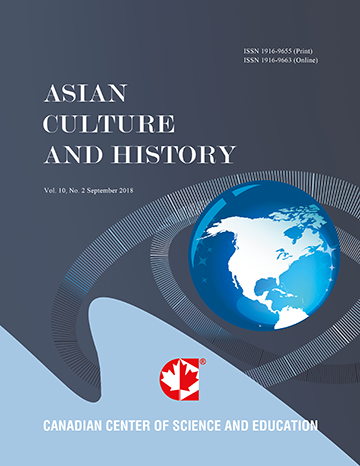The Influence and Exploration of Forceful Control in Enshi Area in China during the Resistance War against Japan
- Zhaoxue Zhang
Abstract
During the resistance war against Japan in China, the national administrative authority penetrated the rural society in Enshi city in Hubei province. For one thing, the village officials as the national administrative power strengthened their functions controlling the rural area; for another, the clan organizations in the rural area in Enshi combated the control. The result of confrontation between the two forces was to further strengthen the legitimacy of the system, extend the national executive power down to the grassroots level, instead of the legitimacy of cultural traditions, and control the rural communities in the Enshi area. This control shows that a modern local administrative system has been established in the Enshi area, and to a certain extent, it reflects that the national government was trying to combine the national strong power with the democratic system to explore patterns of modern political initiatives. The result was that this powerful control in this particular setting of the war again Japan set an unprecedented performance.- Full Text:
 PDF
PDF
- DOI:10.5539/ach.v4n2p77
Journal Metrics
Google-based Impact Factor (2017): 5.42
h-index (January 2018): 11
i10-index (January 2018): 21
h5-index (January 2018): 6
h5-median (January 2018): 9
Index
- Academic Journals Database
- CNKI Scholar
- COPAC
- EconPapers
- Elektronische Zeitschriftenbibliothek (EZB)
- Excellence in Research for Australia (ERA)
- Genamics JournalSeek
- Google Scholar
- Infotrieve
- LOCKSS
- MIAR
- NewJour
- Open J-Gate
- PKP Open Archives Harvester
- Publons
- RePEc
- Scilit
- SHERPA/RoMEO
- Standard Periodical Directory
- Technische Informationsbibliothek (TIB)
- The Keepers Registry
- Universe Digital Library
- WorldCat
Contact
- Ivan YongEditorial Assistant
- ach@ccsenet.org
